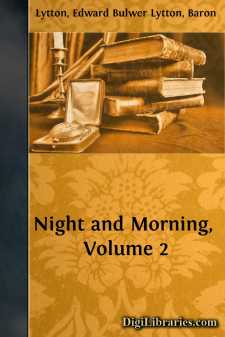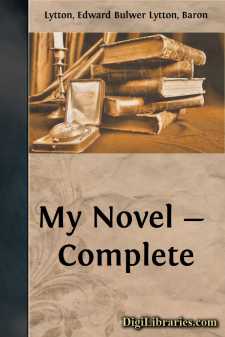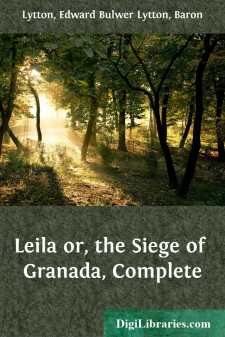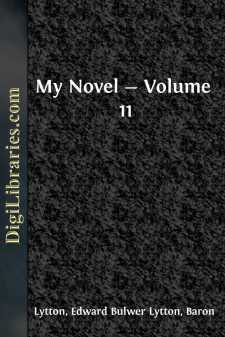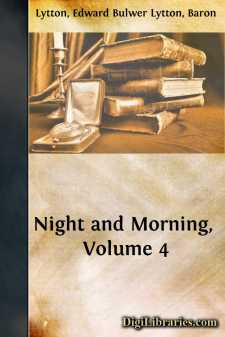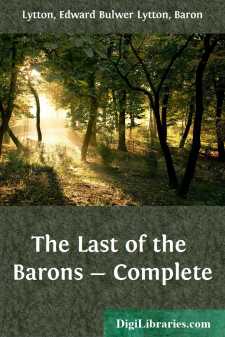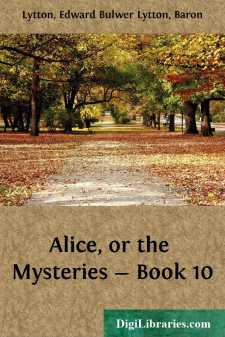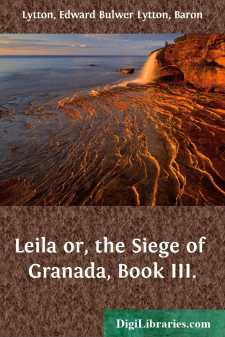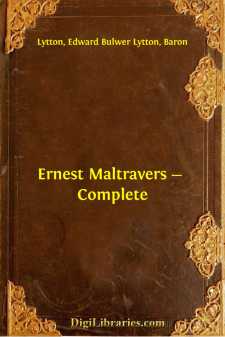Categories
- Antiques & Collectibles 13
- Architecture 36
- Art 48
- Bibles 22
- Biography & Autobiography 813
- Body, Mind & Spirit 142
- Business & Economics 28
- Children's Books 15
- Children's Fiction 12
- Computers 4
- Cooking 94
- Crafts & Hobbies 4
- Drama 346
- Education 46
- Family & Relationships 57
- Fiction 11828
- Games 19
- Gardening 17
- Health & Fitness 34
- History 1377
- House & Home 1
- Humor 147
- Juvenile Fiction 1873
- Juvenile Nonfiction 202
- Language Arts & Disciplines 88
- Law 16
- Literary Collections 686
- Literary Criticism 179
- Mathematics 13
- Medical 41
- Music 40
- Nature 179
- Non-Classifiable 1768
- Performing Arts 7
- Periodicals 1453
- Philosophy 64
- Photography 2
- Poetry 896
- Political Science 203
- Psychology 42
- Reference 154
- Religion 513
- Science 126
- Self-Help 84
- Social Science 81
- Sports & Recreation 34
- Study Aids 3
- Technology & Engineering 59
- Transportation 23
- Travel 463
- True Crime 29
Night and Morning, Volume 2
Description:
Excerpt
CHAPTER I.
"Incubo. Look to the cavalier. What ails he?
. . . . .
Hostess. And in such good clothes, too!"
BEAUMONT AND FLETCHER: Love's Pilgrimage.
"Theod. I have a brother—there my last hope!.
Thus as you find me, without fear or wisdom,
I now am only child of Hope and Danger."—Ibid.
The time employed by Mr. Beaufort in reaching his home was haunted by gloomy and confused terrors. He felt inexplicably as if the denunciations of Philip were to visit less himself than his son. He trembled at the thought of Arthur meeting this strange, wild, exasperated scatterling—perhaps on the morrow—in the very height of his passions. And yet, after the scene between Arthur and himself, he saw cause to fear that he might not be able to exercise a sufficient authority over his son, however naturally facile and obedient, to prevent his return to the house of death. In this dilemma he resolved, as is usual with cleverer men, even when yoked to yet feebler helpmates, to hear if his wife had anything comforting or sensible to say upon the subject. Accordingly, on reaching Berkeley Square, he went straight to Mrs. Beaufort; and having relieved her mind as to Arthur's safety, related the scene in which he had been so unwilling an actor. With that more lively susceptibility which belongs to most women, however comparatively unfeeling, Mrs. Beaufort made greater allowance than her husband for the excitement Philip had betrayed. Still Beaufort's description of the dark menaces, the fierce countenance, the brigand-like form, of the bereaved son, gave her very considerable apprehensions for Arthur, should the young men meet; and she willingly coincided with her husband in the propriety of using all means of parental persuasion or command to guard against such an encounter. But, in the meanwhile, Arthur returned not, and new fears seized the anxious parents. He had gone forth alone, in a remote suburb of the metropolis, at a late hour, himself under strong excitement. He might have returned to the house, or have lost his way amidst some dark haunts of violence and crime; they knew not where to send, or what to suggest. Day already began to dawn, and still he came not. A length, towards five o'clock, a loud rap was heard at the door, and Mr. Beaufort, hearing some bustle in the hall, descended. He saw his son borne into the hall from a hackney-coach by two strangers, pale, bleeding, and apparently insensible. His first thought was that he had been murdered by Philip. He uttered a feeble cry, and sank down beside his son.
"Don't be darnted, sir," said one of the strangers, who seemed an artisan; "I don't think he be much hurt. You sees he was crossing the street, and the coach ran against him; but it did not go over his head; it be only the stones that makes him bleed so: and that's a mercy."
"A providence, sir," said the other man; "but Providence watches over us all, night and day, sleep or wake....


